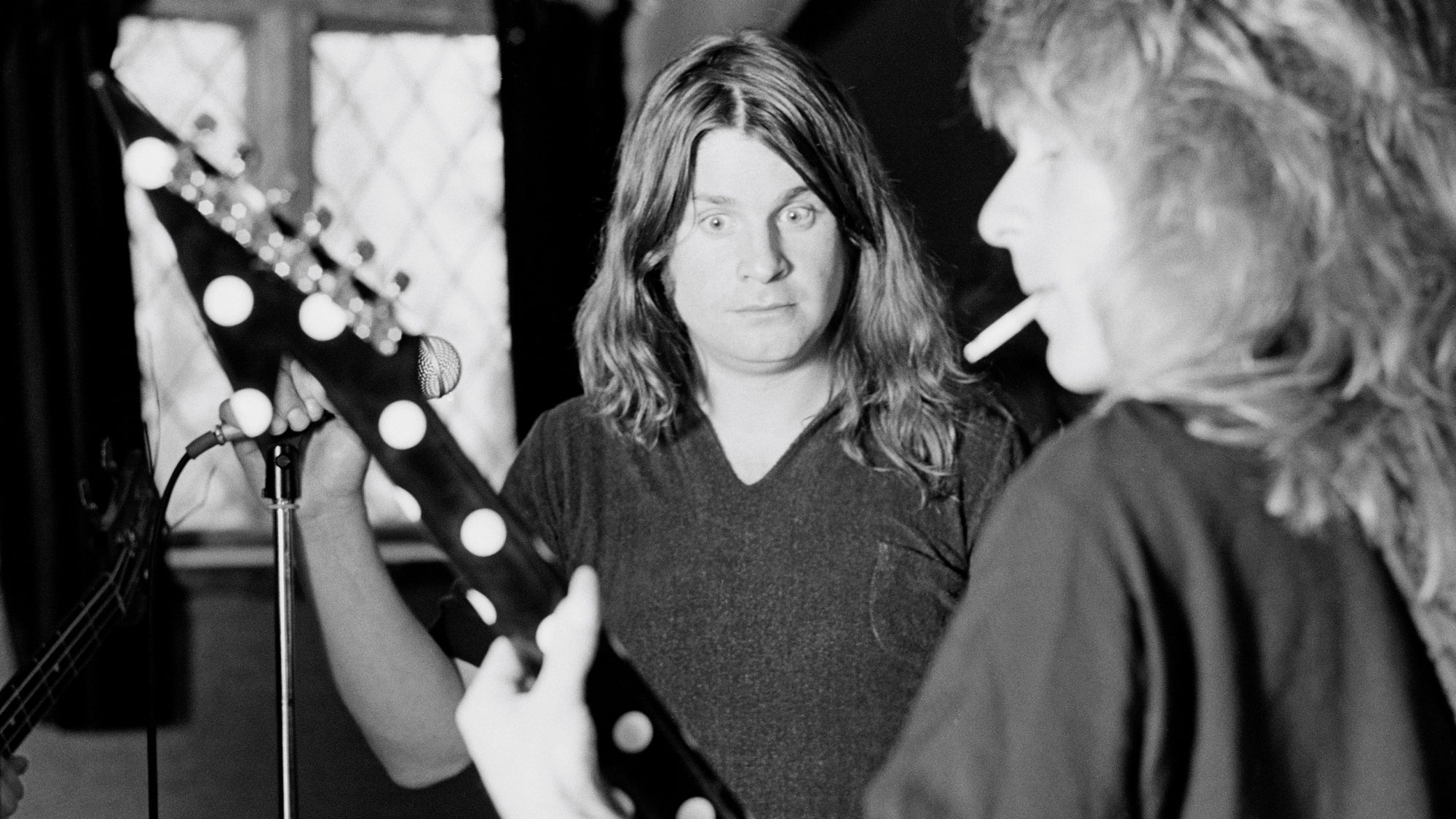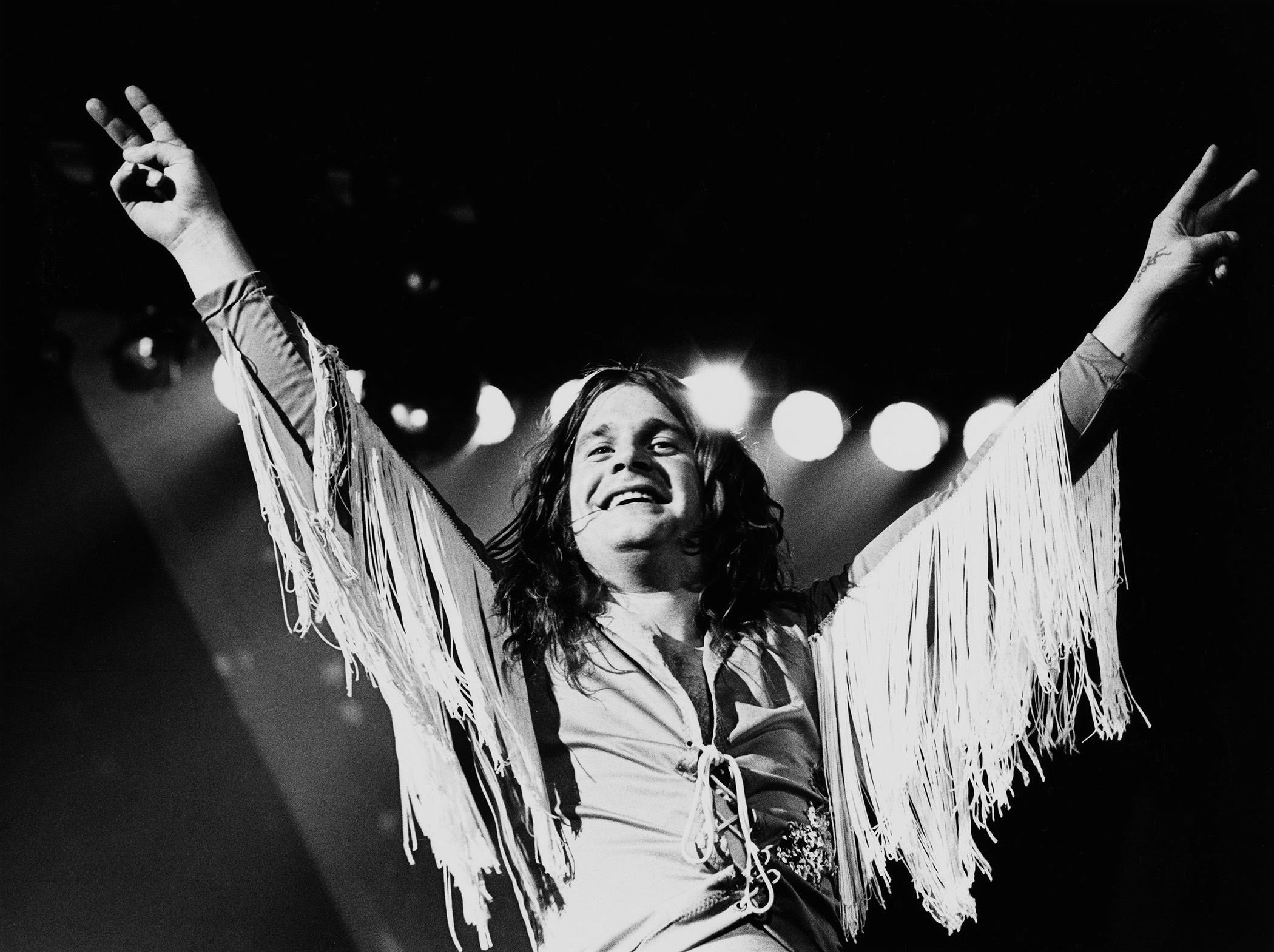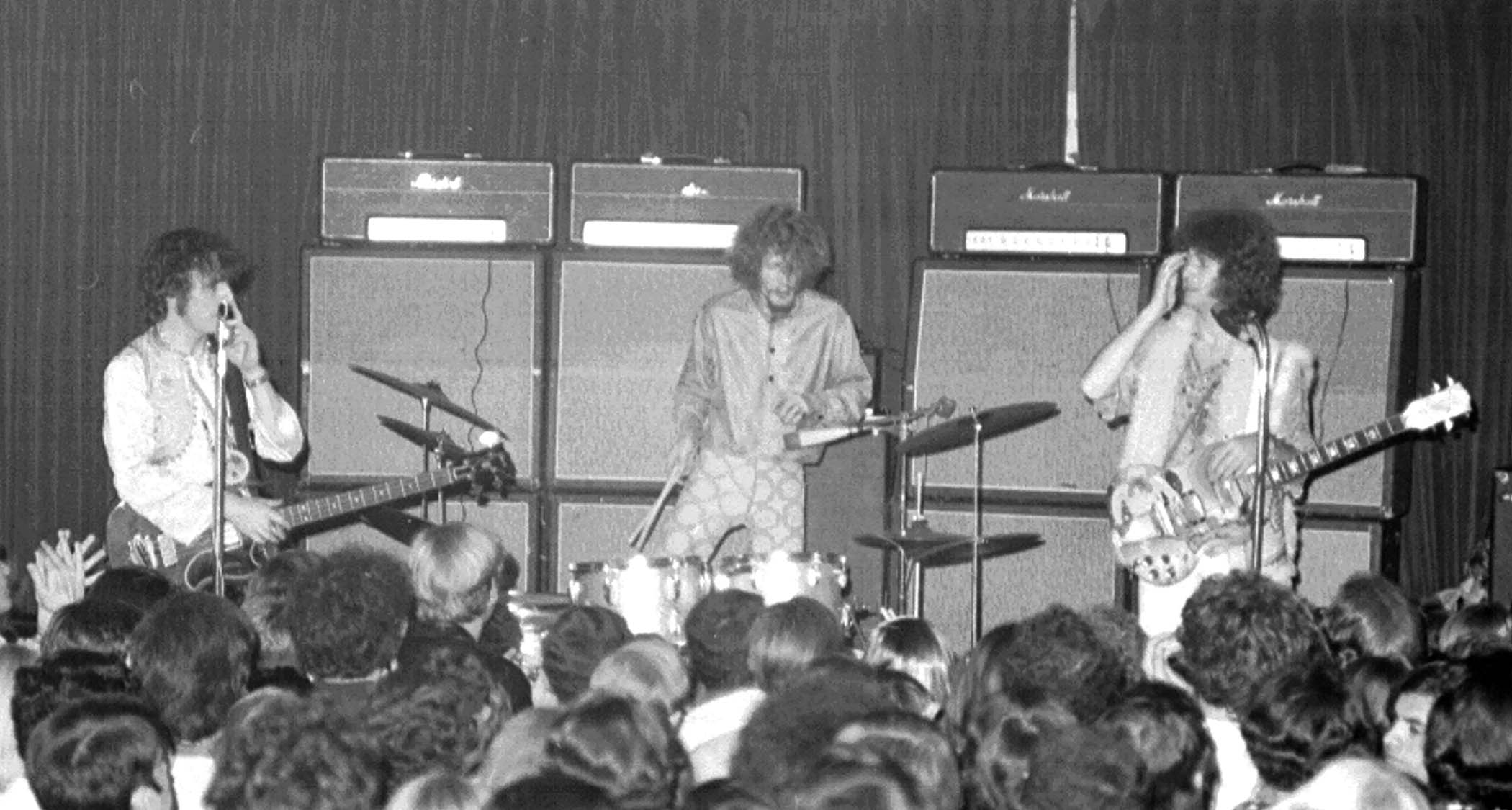“I was all over the place. But when I first heard Randy play, it was poetry in motion. I thought, ‘Wow, I’m onto a good thing here’”: Ozzy Osbourne couldn’t play guitar. Yet he changed the guitar world by introducing some of its greatest heroes
The late heavy-metal icon did not, could not, play guitar. Yet his contribution to the scene – whether giving a platform to fledgling gunslingers or igniting their talents – was inestimable

All the latest guitar news, interviews, lessons, reviews, deals and more, direct to your inbox!
You are now subscribed
Your newsletter sign-up was successful
Read the tributes to Ozzy Osbourne since his death in July at the age of 76, and you’ll hear salutes to every side of his considerable skill set. The flesh-creeping feline yowl. The underrated ear for a melody. The knack for turning a macabre lyric. The madhouse stage presence.
But whatever else he was in life – heavy-metal icon, reality TV pioneer, berserker, survivor – Osbourne was no guitarist. As the Black Sabbath and solo star readily admitted, to cast him as a ‘musician’ in the traditional sense – or as an ‘instrumentalist’ in any sense – was off the mark.
“I don’t play an instrument, I don’t understand music, I can’t even play chords on a guitar,” Osbourne insisted in one video interview with his son, Jack. During a separate 2017 encounter with Rolling Stone, a rueful note crept into the frontman’s voice. “That’s one of my biggest regrets. I can play a little bit of harmonica, and that’s about it. It’s been interesting, because I can’t communicate on a musical level with other musicians.”
Unlike other figures we have bade farewell to in 2025 – among them Mick Ralphs, Brian James and Joe Louis Walker – Osbourne never put fingers to fretboard to play a single classic riff, much less an essential solo or trailblazing technique. And yet, his impact and influence on the guitar scene over the past half-century is deep, profound and undeniable.
Remove the singer from the narrative and some of the rock era’s greatest six-string moments would either never have existed or else gone down in a drabber, much-diluted fashion. Lift him from the timeline – were such a thing even possible – and a fistful of hungry young rough diamonds might never have caught their break or blossomed into all-time greats.
It feels a little glib to cast him as ‘the heavy-metal John Mayall’, but perhaps there’s something in the comparison. Like the Brit-blues godfather – or, indeed, that other supreme talent-spotter, David Bowie – Osbourne had an eye for untapped genius and the ability to ignite it.
Time and again, he drew hard-rock and metal’s most promising gunslingers to him like an industrial magnet, then lit the fuse that turned base metal into gold.
All the latest guitar news, interviews, lessons, reviews, deals and more, direct to your inbox!
“It’s like shopping for a new suit,” Osbourne told Guitar World’s Brad Tolinski of his recruitment policy. “There may be a whole rack of blue suits, but only one will grab you. There’s no ritual, there’s no formula. I’ve just been lucky that everybody’s liked my taste in guitar players.”
There’s no ritual, there’s no formula. I’ve just been lucky that everybody’s liked my taste in guitar players
Osbourne’s first guitar foil, of course, does not belong in this category. Even in his early 20s, Tony Iommi was no ingénue in need of a guiding hand.
Rightly recognised as the chief architect of Sabbath’s thunderous, industrial shudder, his steely de facto leadership meant the Birmingham band would likely have gained a level of notice with or without Ozzy onboard.
Yet the best rock ’n’ roll has counterpoint, and it is hopefully not sacrilege to argue that Iommi’s pulverising SG grooves – especially after he began drop-tuning for songs like Children Of The Grave – might have been too torpid, too sludgy, too heavy without Osbourne’s insistent, agonised upper-register vocal as a catalyst.
From Paranoid to Iron Man, the riffs landed so hard precisely because of that tension between razor’s edge and blunt instrumentation.
His firing from Sabbath in ’79 should have been the end of Ozzy. But while future wife Sharon Arden must take credit for pulling the drug-wrecked singer out of the dirt, his nascent solo career only flew thanks to him identifying the neo-classical wizard Randy Rhoads as a breath of fresh air among the Iommi clones lining the corridor to audition.
“I was all over the fucking place,” Osbourne told this writer in 2011. “But fucking hell, when I first heard Randy play, it was poetry in motion. I thought, ‘Wow, I’m onto a good thing here.’ Who knows why we worked so well. Who knows the answer to anything. But sometimes you’ll meet a girlfriend and it’s more than just a night in the sack.”

Osbourne and Rhoads – with vital input from bassist Bob Daisley and drummer Lee Kerslake – were a true creative team, fixing each other’s holes, working nose-to-nose and exploring tone and pitch to ensure both vocals and guitars exploded from the mix on standouts like Crazy Train and Mr Crowley.
“I’d give him a melody, and he’d work a riff around it,” the frontman told journalist Jas Obrecht. “What we both worked out [was], every heavy metal band sticks to one key. So we made a rule that every number we recorded was never played in the same key.”
The magnanimous singer even defied record label bosses to let his then-unknown junior partner perform an unaccompanied classical vignette, Dee, on 1980’s Blizzard Of Ozz.
In hindsight, it was an unprecedented and ballsy move for a make-or-break debut solo album.
“For me,” Osbourne told this writer, “if it’s just fucking headbanging from start to finish, that’s not an album, it’s just a fucking racket. So when Randy says to me, ‘Do you mind if I put this classical instrumental piece on?’, I said, ‘What are you fucking asking me for? It’s your album as well. Just go for it, y’know?’”
Two years later, Rhoads’ death at 25 in a stupid, senseless prank-gone-wrong might have put Osbourne back to square one. Yet the singer somehow managed to replace the irreplaceable, unearthing a volley of stellar players and urging them to contribute.
Some were dazzling-but-transient placeholders, like Brad Gillis or Bernie Tormé. Others, though, stuck around to become part of the mythology. Jake E Lee proved a tough and fiery sideman when he joined for 1983’s Bark At The Moon.
Later that decade, a Viking-haired Rhoads acolyte named Zakk Wylde was pumping gas until divine intervention (or glorious dumb luck, you decide) led Ozzy’s hand to his audition tape.
“You can imagine how many guitarists sent in their résumés – it was fucking mind-boggling,” recalled the frontman in an interview with Joe Bosso.
“So after a while, Sharon started bugging me – ‘When are you gonna listen to these tapes?’ I just didn’t want to deal with it. So one morning I decided, ‘I gotta do this.’ I stuck my hand in a bag and pulled out a tape, and Zakk’s tape was the first and only one I listened to.”
Once again, Osbourne and Wylde’s partnership bore instant fruit (“Back then it was just us in a room jamming,” the guitarist told Andrew Daly. “We’d be blasting it out in a room. The first song we worked on was Miracle Man…”).
And even when Wylde stepped away from the line-up in the post-millennium to tend to Black Label Society, the ripples kept spreading, with one Osbourne Band axeman informing the next.
“I grew up on Ozzy and Sabbath – if you’re into heavy metal, that’s your father,” late-period sideman Gus G told That Metal Interview podcast, adding in a separate interview with Rob Laing that “the first Ozzy album I got on cassette was Diary of a Madman. When I first heard Randy, I thought, ‘Whoa, who is this guy…?’”
No guitarist, then. But Osbourne’s passing marks the exit of both metal’s most captivating frontman and a lightning rod for the genre’s towering players.
Perhaps Wylde spoke most succinctly for the long line of Osbourne alumni – not to mention the wider hard-rock guitar scene – when he laid it on the line in a 2015 interview with Australia’s Heavy magazine.
“Without Ozzy, I wouldn’t be talking here with you right now. The thing is, with Ozzy, he introduces you to the world, and whatever you want to do is up to you…”
- This article first appeared in Guitarist. Subscribe and save.
Henry Yates is a freelance journalist who has written about music for titles including The Guardian, Telegraph, NME, Classic Rock, Guitarist, Total Guitar and Metal Hammer. He is the author of Walter Trout's official biography, Rescued From Reality, a talking head on Times Radio and an interviewer who has spoken to Brian May, Jimmy Page, Ozzy Osbourne, Ronnie Wood, Dave Grohl and many more. As a guitarist with three decades' experience, he mostly plays a Fender Telecaster and Gibson Les Paul.
You must confirm your public display name before commenting
Please logout and then login again, you will then be prompted to enter your display name.





